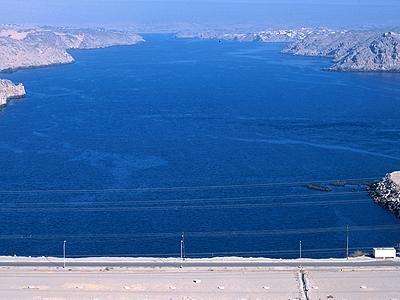Over the past few days, Ankara and Cairo exchanged flirtation regarding a possible normalisation of relations after eight years of mutual hostility. Accordingly, tens of thousands of Egyptians who fled to Turkey are now concerned about their fate. Such concerns were doubled after al-Sisi’s regime demanded closing the dissident Egyptian TV stations in Istanbul. In response, Turkey demanded the directors of those stations to tone down their criticism of Abdel Fattah al-Sisi. The Turkish demand was associated with an implicit threat with closure if the stations did not adhere to the new line.
Initially, Mevlut Cavusoglu declared the restoration of diplomatic communications with Egypt. The statement of Turkey’s FM was followed by a chain of statements from high-profile officials, including Turkish President Recep Tayyip Erdogan, about the common historical and cultural connections between the two countries. However, Omer Celik, the spokesman of the AKP, pointed out that restoring Turkey’s relations with Egypt does not mean abandoning “the Turkish adherence to promoting democracy,” referring to the Turkish refusal of al-Sisi’s military coup in 2013.
On the other side, Egypt welcomed Turkey’s messages. Sameh Shoukry affirmed the diplomatic communication before the parliament, explaining that changing the Turkish policies is a condition for such a rapprochement. Earlier, Reuters reported intelligence communication between the two countries and that Ankara demanded a meeting in Cairo to discuss the common issues; a demand that Cairo welcomed.
Sacrificing the Egyptian opposition
Amr Khattab, the former general secretary of the Strong Egypt students movement, who fled persecution in Egypt to Istanbul, sees that the threat to close the dissident TV stations is a prelude to eliminate the dissident media over the next few months. “Turkey’s response to Cairo’s conditions raises concerns of Egyptians who fled persecution in Egypt to Turkey,” Khattab told Egypt Watch.
Khattab considered the recent statement made by Yasin Aktay, a chief aide of the Turkish President, that Egyptians in Turkey will not be harmed, as insufficient to reassure them.
Ammar Fayed, PhD student in Istanbul Aydin University, excluded rapprochement between the two countries. “The deal will be expectedly limited to common understandings regarding the Libyan conflict and Eastern Mediterranean Hydrocarbon issues,” Fayed told Egypt Watch. “Ankara attempts to disperse the anti-Turkish alliance, which includes Egypt, Greece and Cyprus along with Israel and the Emirates.”
Fayed sees that Egypt’s adherence to such an alliance represents the main obstacle against rapprochement with Turkey. On the other hand, Turkey will not abandon its ambition in the Middle East easily, which it endeavored to promote over the last decade disturbing Egypt. “Abandoning the Egyptian opposition would indicate a strategic change in Turkey’s vision.”
On the other hand, pro-regime media figures called for “a ceasefire,” before normalisation, referring to shutting the dissident TV stations. Beforehand, Abdel Fattah al-Sisi spoke in public repeatedly about those stations. “Anyone who speaks in those TV stations abroad attacking us, I swear he will be held accountable,” al-Sisi once said in a statement that revealed the discomfort caused by those stations to his regime.
The Egyptian opposition abroad failed to organise and develop pressure tools that it can use to achieve its goals and protect itself. The opposition turned to be a media show that disturbs the regime in Egypt but cannot threaten it. Ankara realised such limitation years before, and stopped considering the Egyptian opposition a trump card. Now, Ankara deals with the Egyptians as a persecuted minority it hosts and deals with through the ministry of interior, which organise their residency in Turkey. About 30,000 Egyptians have tourist residencies which require annual renewal. A minority do not have passports, so they have a humanitarian residency, while investors and public figures have permanent residencies or Turkish nationality. This situation is reminiscent of the Uyghurs, whom Turkey hosts tens of thousands, whilst maintaining excellent relations with China.
What changed?
Egyptian-Turkish relations deteriorated rapidly after the overthrow of the late president Mohamed Morsi. After the Turkish military intervention in Libya, tension between the two countries peaked reaching the threat of military conflict. Recent international attitudes motivated Turkey toward such rapprochement with Egypt aiming to break through its isolation in the Eastern Mediterranean issue and to restore relations with Saudi Arabia and the Emirates. Moreover, the Egyptian-Turkish rapprochement seems related to Gulf Reconciliation that brought relations back between Doha and the Arab Quartet.
The election of Joe Biden in the USA represents the most prominent motivation towards calming down conflicts in the Middle East. Egypt and Turkey were more adapting with Trump administration, and Ankara’s silence towards the recent US intelligence report over the murder of Saudi journalist Jamal Khashoggi, which accused Saudi Crown Prince Mohamed bin Salman of ordering his killing, is understood in such a framework. Moreover, Erdogan called Saudi King Salman in November 2020 to improve relations between the two countries. Again, Erdogan expressed sadness over the participation of Saudi Arabia in military exercises with Greece, “we do not want to see the kingdom making such a decision.”
Several common issues and interests connect Egypt with Turkey, and the two countries seem to have reached the decision that the eight years of break are over, and they have to work together. However, the legacy of those years represents a hard challenge and building trust will be difficult. Therefore, the two countries will be keen on taking the maximum gains from the other.





Recent Comments